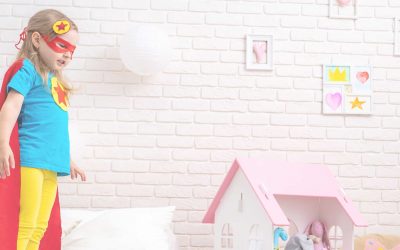How Can I Help My Forgetful Child?
Do you have a child who has a serious case of forgetfulness? They can’t remember to flush the toilet, pack their lunch or do their chores? If you have a child, aged two years and up, and you find yourself reminding, reminding, reminding, then these “HOW TO” tips to help decrease your child’s forgetfulness are for you!
ARE YOU THE KING OR QUEEN OF REMINDERS?
The first thing I want you to ask yourself is “Do I constantly need to remind my child to do something?”
If you answered yes to this question, that’s your first red flag.
There’s a quote I love and always teach parents,
“If your child always forgets, then you always remind.”
Forgetfulness is a learned behaviour.
Your child has been taught to forget based on the fact that you will always remind. Why remember if someone else will do it for me? To break this habit of reminding, it will take time and practice.
To help you, I am offering four easy to follow steps to set the stage for the reminders and forgetfulness to come to a stop.
Breaking The Habit In 4 Easy Steps
1. SET CLEAR EXPECTATIONS IN ADVANCE
Often times our expectations are not clear. Our kids need our expectations to be black or white, not grey. When we have grey expectations, our kids become unsure how to please us.
Try taking some time to decide in advance what you want your kids to do. For 2-3-year-olds, maybe it’s to put all their dirty clothes into the hamper.
For 4-5 maybe it’s to get themselves dressed, brush teeth and make their bed.
Whatever the expectations are they need to be clear and concise. Once you’ve decided on your expectations, the next step is to teach, train and practice.
2. CREATE CHARTS TO SET FIRM EXPECTATIONS
Charts are a great way to help hold your kids accountable for their duties.
Be sure the chart has all the things you want your child to do listed clearly and that the charts are age appropriate.
For example, younger kids would have charts that include pictures with words to help with early literacy skills.
For older kids, you can have printed only or have them make and decorate their own charts.
Once the charts are made, you must take the time to teach and practice. It’s key that you know your child is capable of completing all the tasks at hand.
For example, a morning chart for a 4-5-year-old may include: make the bed, brush teeth, go potty, get dressed, pack a water bottle, shoes and coat on, ready to go! If you know your child is capable of all of these things, they can go on the chart.
You want your kids to be successful so don’t add items to the list that your child can’t complete independently.
3. TEACH, TRAIN, & PRACTICE
Before we can be sure our kids are ready to take on their new responsibilities, we must take time up front to teach, train and practice.
Front loading will take some time and effort on your part, but the more you front load, the less work you have on the back end. Once you’ve taken time to teach and train, you are then able to give your kids the freedom and space to follow their charts independently.
This independence will help fill up your child’s ‘Power Buckets’, which increases self-worth, confidence and internal motivation.
4. ALWAYS FOLLOW THROUGH
Follow through is the hardest part for parents.
We don’t want our kids to be uncomfortable for a single minute, but it’s important to follow through in order for lessons to be taught.
What this means is, once expectations are set, charts are made and you’ve taken time to teach and train, then you must let your kids go. If and when they forget something, because they will forget something at some point, you need to NOT REMIND.
Don’t bail them out by reminding them. If you remind them, they will continue to forget. But, if you let them forget they will learn to deal with the natural consequence and remember next time.
This is where the life lesson is taught and your child begins to remember. This is where you can finally say goodbye to your child’s forgetfulness.
Good Luck With Your New Plan
Follow these 4 steps and soon you will have a child who remembers everything that needs to be done and all without you reminding!
Tia is a Parent Consultant and works with families at Kidcrew Medical hosting workshops and consulting one-on-one. Tia is a mother to two young boys aged 7 and 9 years. She has a Masters in Early Childhood Education and was a teacher before starting her own business, Tia Slightham – Parenting Solutions Inc. Tia is Certified in Positive Discipline and trained in Positive Parenting Solutions. She has worked with kids and families for over 15 years.










